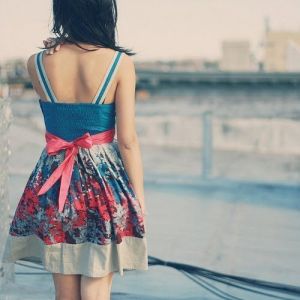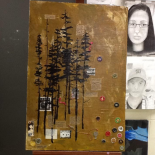Illusion and Reality
People like to believe that they hate Illusions, but Reality is they love their Illusions
The Hidden Illusions in Carol Shield’s: Dressing Up for the Carnival
This short story expresses illusion and reality in different ways. Everyone wakes up in the morning, gets dressed and steps into their role as an individual. This short story expresses how different people behave just based on how they are dressed or the item that they are carrying. People love their illusions; they love the idea of being something that they are not. As humans we need our illusions, however these illusions make reality becomes dull, and at times, hurtful.
One small change in a person’s life can alter their entire outlook on life. Each person  presented in this short story expresses the idea that one small change can influence the way that individual’s whole day will go. For instance each individual presented in the short story woke up and picked an item or clothing that altered the way there day went. “She [Tamara] never checks the weather before she dresses; her clothes are the weather…” Tamara realizes how important the way she dresses is. She embodies the idea that given the right clothes you could be any kind of person you wish. Everyone likes to entertain the thought that they can in fact be someone that they are not. “The shriveled fate he [Roger] sometimes sees for himself can be postponed if only he puts his mind to it.” Roger, another character in this short story, had gone to the grocery store and bought a mango instead of the apple that he usually bought. This change in his routine changed him as a person. Without the mango he felt like an old man, worn down, and unloved; but once he got that mango into his hand he became a different kind of person. He liked the idea of the illusion that he had created for himself. He saw himself in a different way than he usually did.
presented in this short story expresses the idea that one small change can influence the way that individual’s whole day will go. For instance each individual presented in the short story woke up and picked an item or clothing that altered the way there day went. “She [Tamara] never checks the weather before she dresses; her clothes are the weather…” Tamara realizes how important the way she dresses is. She embodies the idea that given the right clothes you could be any kind of person you wish. Everyone likes to entertain the thought that they can in fact be someone that they are not. “The shriveled fate he [Roger] sometimes sees for himself can be postponed if only he puts his mind to it.” Roger, another character in this short story, had gone to the grocery store and bought a mango instead of the apple that he usually bought. This change in his routine changed him as a person. Without the mango he felt like an old man, worn down, and unloved; but once he got that mango into his hand he became a different kind of person. He liked the idea of the illusion that he had created for himself. He saw himself in a different way than he usually did.
The way other people perceive an individual can also change with their appearance and the items that they are carrying. When someone carries a certain object strangers perceive them in a different way, because the individual appears to have specific purpose. “Today he [Mr. Gilman] decides to buy her flowers.” Mr. Gilman decided to buy his daughter-in-law flowers for dinner that night which alters the way strangers look and act around him when he runs his errands. Mr. Gilman is not a nice looking man with his “eyes like water sacs, crimson arcs around the ears, a chin that betrays him, the way it mooches and wobbles…” but once he bought the flowers people believed that someone somewhere was waiting for him, thus treated him with more kindness than what he was used to. Mr. Gilman had become someone else. Like Mr. Gilman people everywhere live in their own illusions.

Recent Comments